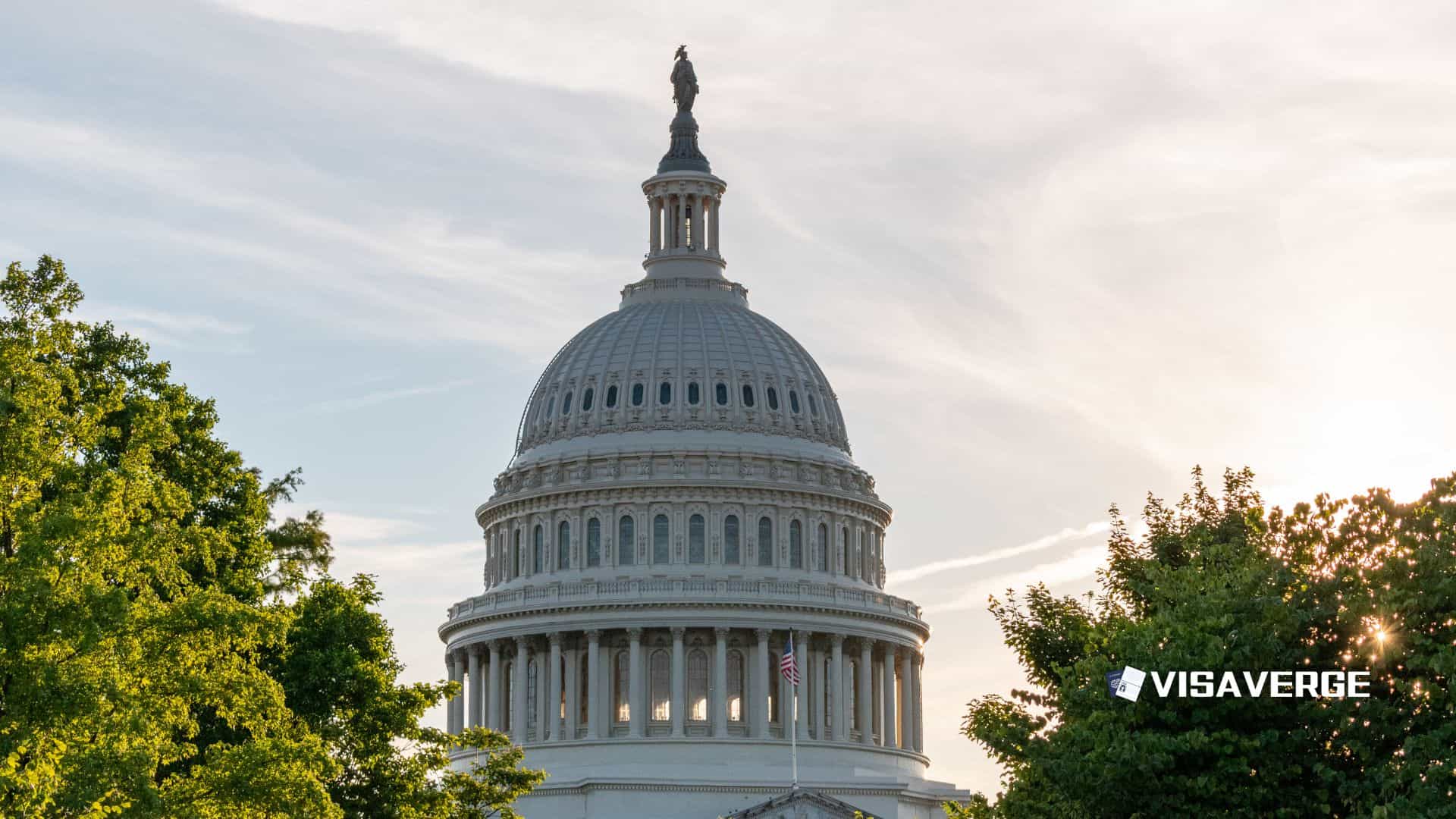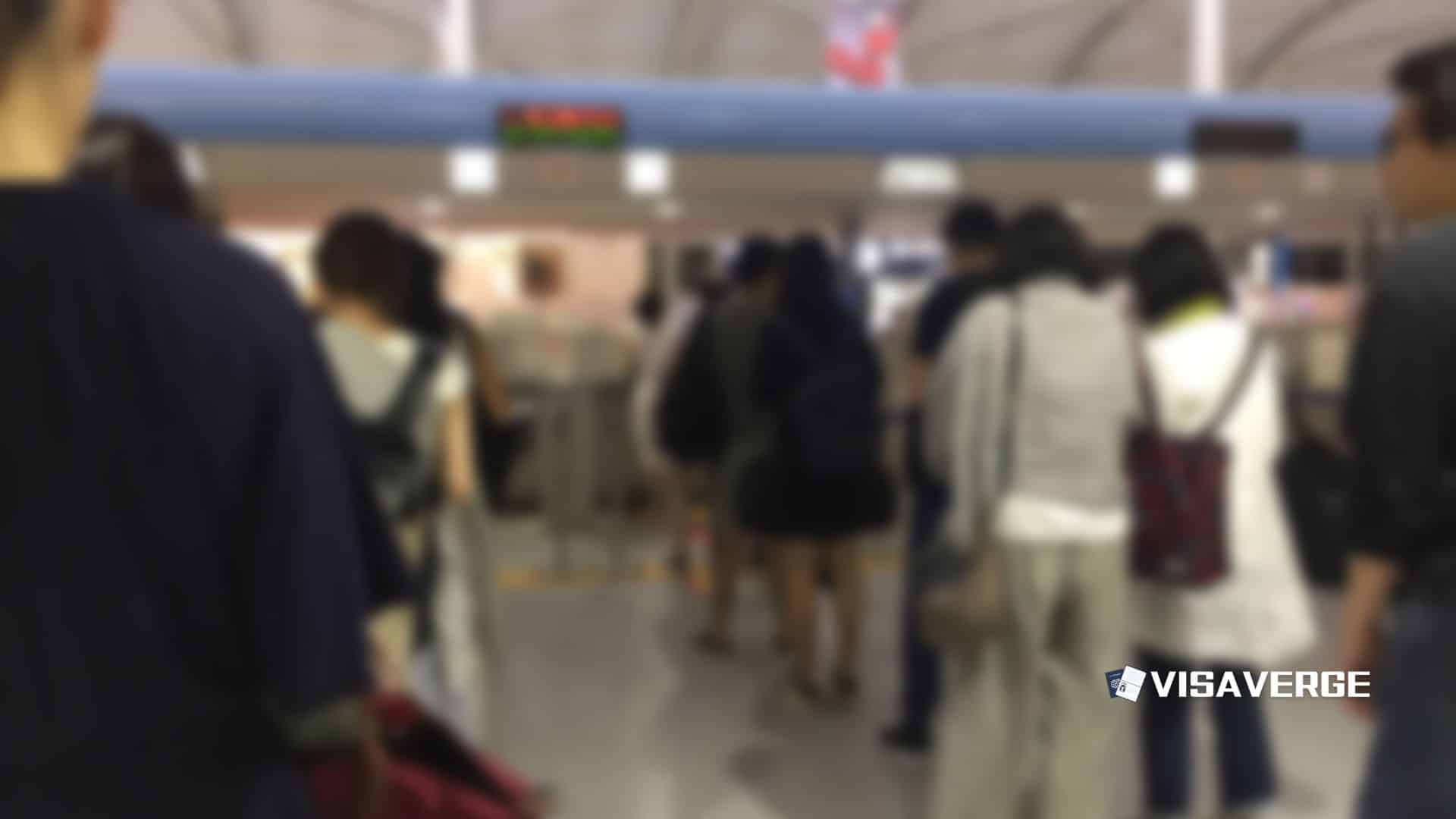Key Takeaways
• About 78% of Kentucky Derby backstretch workers are immigrants, many from Latino backgrounds, supporting crucial event operations.
• Industry advocates highlight visa system flaws, pushing for reforms like Senator Bennet’s Affordable and Secure Food Act for legal stability.
• Horse racing supports $177 billion annually in U.S. agriculture, with 72% immigrant labor, facing labor shortages and legal uncertainty.
As the excitement for the Kentucky Derby grows, a deeper story unfolds under the bright lights and lively crowds. Far from the glamorous front stretch at Churchill Downs, there is another world—the backstretch—where the real heartbeat of this event can be found. Here, a community of dedicated workers prepares the horses, keeps the barns running, and helps make the Derby a reality. Many of these essential workers are immigrants, and today, their challenges are taking center stage in a growing debate about immigration reform in the United States 🇺🇸.
Who Powers the Kentucky Derby Backstretch?

Every May, the Kentucky Derby brings crowds and creates excitement in Louisville. What many fans do not see is the wide range of work needed to prepare the horses and the venue. Workers fill roles including hot walkers (who cool down the horses after exercise), grooms (who care for the horses every day), exercise riders, farriers (who take care of the horses’ hooves), and other vital jobs. According to recent reports, about 78% of these workers are immigrants. Many come from Latino backgrounds, and for some, this work is their main way to support their families.
It’s easy to overlook these hard-working people while enjoying the thrill of race day. However, the Derby could not reach its world-class level without immigrants performing tough, skilled jobs that demand early mornings and year-round commitment.
Advocates Step Up for Immigration Reform
Calls for immigration reform have grown louder, especially as the Derby shines a light on the industry’s workforce. One major group pushing this effort is the American Business Immigration Coalition (ABIC). As reported by VisaVerge.com, ABIC brings together over 1,700 CEOs and trade associations from across several states. Their goal is to find fair, practical ways to update immigration policy so that industries like horse racing can keep running smoothly.
On May 1st, influential industry leaders and advocates gathered at Churchill Downs to urge lawmakers to take bipartisan action. They singled out problems with the popular H-2A agricultural visa, which is often too limited or slow to handle the year-round needs of horse racing. The paperwork and waiting make it hard for employers and workers alike.
Many are looking to newer proposals, such as Senator Bennet’s Affordable and Secure Food Act (introduced in 2023). This act would offer a clear path to legal status for farm and equine workers who commit to continued employment. Supporters believe this approach makes sense, because it rewards hard work and loyalty while filling jobs that are often left open.
Labor Shortages: Why They Matter for the Derby and Beyond
One major reason for these advocacy efforts is the severe shortage of workers in jobs crucial to horse racing and farming. Labor shortages threaten the Kentucky Derby itself. Without enough dedicated workers, the show might not go on. These workers handle difficult, often physically demanding jobs that not everyone wants to do. If they are not available, the Derby could lose its reputation for excellence—and its economic impact on Kentucky and the United States 🇺🇸 as a whole would suffer.
Industry data shows that the equine sector (which includes horse racing) supports about $177 billion each year within U.S. agriculture. Out of all these jobs, about 72% are held by immigrants. Any gap in the workforce can be felt well beyond race day, affecting stables, breeding operations, and the many businesses that depend on horse racing for their own survival.
Legal Uncertainty: The Hidden Worry for Workers and Employers
While the Kentucky Derby might look like a picture-perfect event, there is growing anxiety behind the scenes. Many workers are stuck in legal limbo. On one hand, there are limits to how many people can get work visas like the H-2A each year. On the other, immigration enforcement has increased, and more workers fear the risk of deportation or being left without legal protections.
This legal uncertainty makes it tough for workers to plan their lives. Some live in constant worry, unsure if they’ll be able to keep earning a living or stay with their loved ones. At the same time, employers struggle to plan their business, as they do not know if their workforce will be available when the next racing season starts.
Leaders from the horse racing world have made their feelings clear:
“Horses cannot reach the track without the necessary workforce behind them… We urge lawmakers to focus on legislation that simplifies legal status for this demographic.”
—Dale Romans & Eric Hamelback
This statement captures the pain felt by both workers and industry owners. Without change, the future of not just the Kentucky Derby, but horse racing across the country, is at risk.
Worker Protections: Making the Backstretch Safer and Fairer
Advocacy groups also point out that immigration reform must include better protection for the workers themselves. Many backstretch workers live in simple housing on or near the track, sometimes in cramped or outdated conditions. Advocates want to see improvements in wages, housing, and health and safety rules.
This call extends beyond simple legal status. It’s about dignity and respect. After all, the Kentucky Derby’s global image depends on the work done in the barns and stables. Giving workers fair pay, safe places to live, and better working conditions benefits everyone. It means happier, more secure workers—and a stronger, more reliable event every year.
The Economic Ripple Effect
The Kentucky Derby is more than just a sports competition. It pumps a lot of money into the local and national economy. Restaurants, hotels, vendors, and suppliers all benefit from the crowds that the Derby brings in.
However, if the workforce behind the event is not secure, these economic gains could disappear. If immigrant workers can’t get or keep jobs because of unclear visa rules, the event might shrink—or even be cancelled one day. Businesses connected to the Derby would feel the pain, with jobs and income lost far beyond Churchill Downs.
The bigger picture is clear: helping immigrants thrive helps the economy as a whole. Making it easier for people to get legal work, stay in the country, and build a life in the United States 🇺🇸 means a stronger, more stable future for everyone involved.
What Are Advocates Suggesting?
Here’s a quick recap of what horse racing and business leaders want to see:
- Clear, simple paths for immigrant workers to gain legal status and stay on the job.
- Reforming visa programs like H-2A so they match real-world needs—especially keeping in mind that horse racing needs workers all year, not just during harvest or race season.
- More worker protections, including fair pay, safe and decent housing, and access to health care.
- A bipartisan approach that brings people together, rather than driving them apart.
These ideas aren’t just about helping immigrants—they are about making sure businesses can keep hiring skilled and willing workers in a tight labor market.
Response From Lawmakers and the Public
With some border security worries easing, supporters of reform say there is a real chance for change. At recent meetings, lawmakers from both sides seemed more open to working together. Public opinion is also shifting, as more people realize how important immigrants are—not only for horse racing, but also for farms and food production.
Holding the Kentucky Derby up as a symbol, industry leaders argue that immigration reform is not just the fair thing to do, but the smart thing. The event’s worldwide fame and its impact on American traditions are tightly linked to laborers who often have no path toward legal status.
A Closer Look: The Table of Concerns
To make the discussion clearer, here’s what advocacy groups have outlined as the main problems and their suggested fixes:
| Issue | Who Raised It | Possible Solution |
|---|---|---|
| Labor shortages | Horse Racing Orgs | Easier legal status; fix and speed up visa rules |
| Legal uncertainty | ABIC and Industry Leaders | New laws; better, more modern work visas |
| Worker protections | Advocacy Groups | Higher pay; better homes; health and safety rules |
| Keeping U.S. businesses strong | Business Leaders | Welcome more skilled people; stay world leaders |
This table shows that the same workforce challenges facing the Kentucky Derby are echoed across U.S. agriculture and related industries.
Looking Forward: The Path to Reform
The urgency around these issues is growing. As the Kentucky Derby draws nearer each year, the calls for change become harder to ignore. Most people agree that a broken immigration system can’t keep up with the needs of America’s farmers, horse trainers, and racing teams.
Recent proposals offer hope, but real work remains to be done. The support from business leaders, lawmakers, and the wider public will play a big part in deciding what happens next. What’s clear is that without immigrants filling these essential roles, the Kentucky Derby—and all the jobs and dreams that go with it—could face an uncertain future.
For those interested in better understanding how work visas like H-2A operate or what rights workers have, more facts can be found at the official U.S. Citizenship and Immigration Services (USCIS) page on temporary work visas.
Conclusion: Why This Conversation Matters
At its heart, the Kentucky Derby is a story of tradition, hard work, and dreams—qualities shared by every immigrant who helps make the event possible. Calls for immigration reform that focus on these workers are not just about fairness, but about protecting a national treasure and the people who keep it running smoothly.
As reported by VisaVerge.com, without meaningful immigration change, jobs go unfilled, businesses lose their edge, and beloved traditions are put at risk. By facing these challenges together and choosing solutions with compassion and common sense, lawmakers and community leaders can ensure that both the Kentucky Derby and the workers behind it will have a path to a stronger, more certain future.
The Kentucky Derby remains one of America’s most famous and proud celebrations. Making sure immigrants are welcomed, protected, and able to work legally is not just the right thing to do for them. It’s the smart—and necessary—thing to do for everyone who enjoys, depends on, or is inspired by this world-class event each spring. The ongoing debate and push for immigration reform hold great importance, as they touch not only on the well-being of these hard-working individuals but also on the future strength of iconic American traditions.
Learn Today
Backstretch → Area behind racetrack grandstands where horses are stabled, cared for, and prepared by workers for racing events.
H-2A visa → A U.S. temporary agricultural work visa allowing foreign nationals to fill seasonal jobs when American workers are unavailable.
American Business Immigration Coalition (ABIC) → An organization of business leaders advocating for practical immigration reforms to stabilize the workforce and economy.
Affordable and Secure Food Act → A legislative proposal to provide a path to legal status for farm and equine workers committed to continued employment.
Legal limbo → State of uncertainty regarding immigration status, leading to insecurity about continued employment and residence rights.
This Article in a Nutshell
The Kentucky Derby’s brilliance depends on immigrant workers tackling tough, skilled jobs behind the scenes. Immigration reform is crucial, as strict, outdated visa rules create labor shortages and uncertainty. Advocates urge practical paths to legal status, fair pay, and safety, ensuring the Derby’s legacy and the workers’ future remain secure.
— By VisaVerge.com
Read more:
• Florida National Guardsmen could become immigration judges under new proposal
• May Day protests in North Jersey focus on immigration issues
• Alberta Advantage Immigration Program targets key sectors in new draws
• House Republicans block limit on Immigration and Customs Enforcement powers
• U.S. Attorneys charge over 1,200 with immigration crimes in border states












